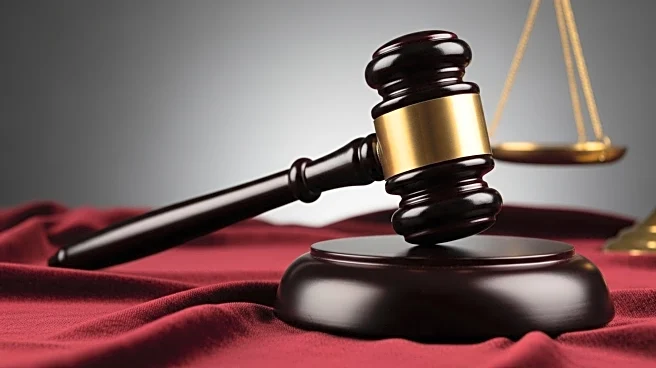What's Happening?
Todd Nepola has filed a $11 million lawsuit against Bravo, NBCUniversal, and producers, alleging defamation and unauthorized use of his name and likeness across two seasons of 'The Real Housewives of Miami' (RHOM). The complaint, filed on October 7, 2025, claims that the portrayals damaged Nepola's business reputation in Miami and caused emotional distress. This legal action challenges the liability of reality TV producers for potentially manufactured storylines and could influence how consent and editorial practices are managed in the industry.
Why It's Important?
This lawsuit is significant as it highlights the growing scrutiny on reality TV production practices, particularly concerning consent and the portrayal of individuals. If Nepola's case succeeds, it could set a precedent for tighter regulations on how reality shows are edited and how consent is obtained from participants. This could lead to increased production costs and more rigorous legal reviews, impacting how reality TV is produced and potentially reducing the amount of manufactured drama. The case also underscores the potential reputational risks for networks and producers, which could affect advertising and viewer perceptions.
What's Next?
Should Nepola win the lawsuit, networks may need to revise their consent forms and editing practices to avoid similar legal challenges. This could result in a shift towards more authentic storytelling in reality TV, with less emphasis on manufactured drama. Additionally, the case may encourage other individuals who feel misrepresented by reality shows to pursue legal action, further increasing the pressure on producers to ensure accurate and fair portrayals. The outcome of this lawsuit could have lasting implications for the reality TV industry and its approach to participant consent and narrative construction.
Beyond the Headlines
The lawsuit raises broader questions about the ethical responsibilities of reality TV producers and the impact of their storytelling choices on individuals' lives. As the industry faces increased legal scrutiny, there may be a push for more transparent and accountable production practices. This could lead to a cultural shift in how reality TV is perceived, with audiences demanding more genuine and respectful portrayals of participants. The case also highlights the tension between entertainment value and ethical considerations in media production.










